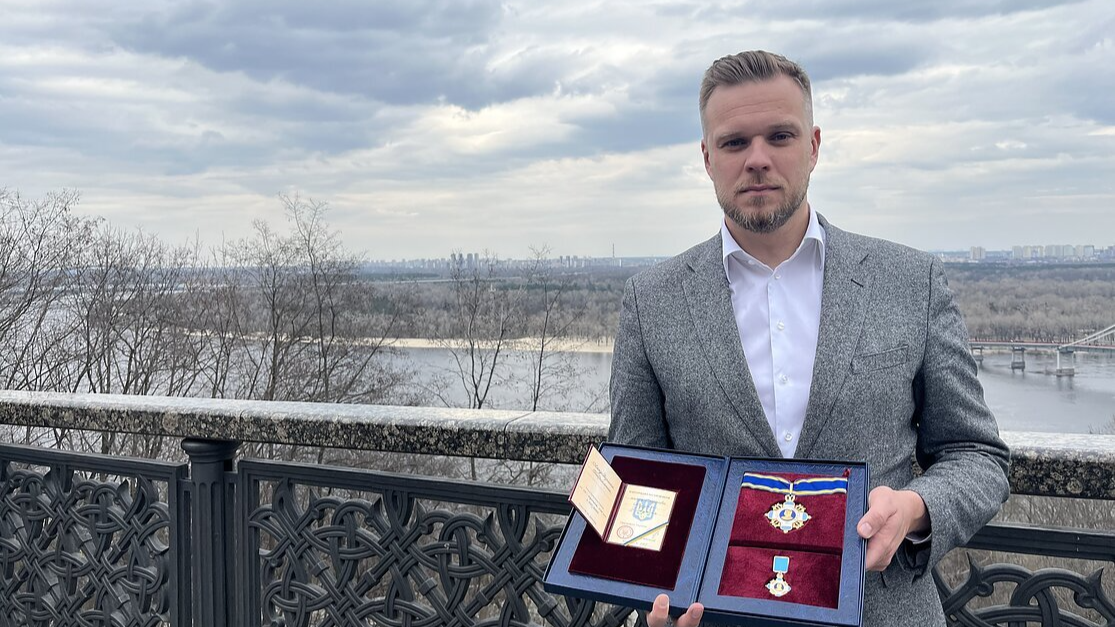An Italian Treasury source has confirmed to Agence France Presse (AFP) that the G7 is considering a $50 billion fund for Ukraine backed by a $350 billion pool of seized Russian assets. The Italian source told AFP that the plan represented an “interesting way forward” and may be introduced when the global powers hold their annual summit in June, in the southern Italian region of Puglia. (Italy currently holds the group’s rotating presidency.)
The plan, which would create a G7 loan backed by future profits on the $350 billion asset pool, first needs to garner the European Union’s approval. The United States, however, has already begun to promote the idea.
JOIN US ON TELEGRAM
Follow our coverage of the war on the @Kyivpost_official.
US Treasury Secretary Janet Yellen will deliver a speech at the European Central Bank in Frankfurt on Tuesday to that effect, the text of which was released on Monday:
“If we stand by as dictators violate territorial integrity and flout the international rules-based order, they have no reason to stop at their initial targets,” Yellen’s speech reads. “I believe it’s vital and urgent that we collectively find a way forward to unlock the value of Russian sovereign assets immobilized in our jurisdictions for the benefit of Ukraine.”
Her prepared remarks said that countries “need to continue cracking down on Russian sanctions evasion, including through third parties, and sensitive goods that originate in the US and Europe.”

Zelensky Meets CIA Director William Burns in Ukraine
🇮🇹 Italian Foreign Minister Antonio Tajani expressed concern 🙄 at a meeting on Monday about a Russian court's decision to seize securities, accounts and property amounting to 5% of bank UniCredit's assets in the country 🇷🇺https://t.co/F3CywWXoZn#italy #russia
— Russia-Ukraine Daily News (@rvps2001) May 20, 2024
Lithuanian minister says it’s time to rewrite the rules of the war in Ukraine
Echoing sentiments from his Baltic counterparts, Lithuanian Prime Minister Gabrielius Landsbergis on Monday told a French TV interviewer that he agreed with French President Emmanuel Macron that Western military trainers should be sent to Ukraine, and further, that the West should stop putting limits on how Kyiv decides to use Western provided weapons.
“From the beginning, we have made the mistake of limiting the Ukrainians because it could be seen as an escalation,” he said. “The Ukrainians must be allowed to use the equipment provided to them so that they can achieve strategic objectives. They must be able to strike Russian territory, supply lines, and military units preparing to attack Ukraine.”
“Only one side has rules imposed on it,” he concluded. “We must abandon these rules that we created.”
His remarks echo sentiments expressed by Estonian Prime Minister Kaja Kallas a day earlier in an interview with the Financial Times, saying that sending NATO troops to train with Ukrainian soldiers would not trigger a war with Russia.
“I can’t possibly imagine that if somebody is hurt there, then those who have sent their people will say ‘It’s Article Five. Let’s bomb Russia…. That’s not how it works,” she said.
To clarify, Article Five of the NATO treaty stipulates that an attack on one member nation is an attack on all and that other NATO nations: “will assist the Party or Parties so attacked by taking forthwith, individually and in concert with the other Parties, such action as it deems necessary, including the use of armed force, to restore and maintain the security of the North Atlantic area.”
The US Department of Defense reiterated its disagreement with these views originally forwarded by France. After a meeting with the Ramstein Group, Pentagon chief Lloyd Austin said, “Our expectation is that they [Ukraine] continue to use the weapons that we’ve provided on targets inside of Ukraine.”
"Together we can help Ukraine Win this war."
— 🛰Charles Hammill 🇺🇸🇺🇦 Слава Україні!🛰 (@CharlesHammill) May 20, 2024
"Let's not be afraid of our own power."
Kaja Kallas - Prime Minister of Estonia pic.twitter.com/gXdx32JQGr
Ukraine’s NSDC says negotiations are inevitable, NATO invitation will “cool lots of hot heads in Russia”
The Secretary of the National Security and Defense Council, Oleksandr Lytvynenko, told a security conference in Turku, Finland, on Monday that Ukraine is prepared to negotiate the end of the war with Russia, but that an invitation to join NATO would be an important part of that process.
Speaking at a Baltic forum entitled “NATO 2024 and the Arctic, Europe,” Lytvynenko said, “Ukraine is clearly aware that the war will end in negotiations. That is why President Zelensky’s Peace Formula has been prepared and is being promoted… I am convinced that it will be supported by the participants of the Peace Summit in Switzerland in June 2024,” he added.
The Global Peace Summit is scheduled for June 15 and 16 in Bürgenstock, Switzerland, just outside Lucerne. About 160 nations have been invited to attend (Russia was not one of them) and more than 50 delegates have accepted. Half of those are from non-European countries: Recent confirmations to the guest list include Georgia, Malawi and Cape Verde, the first African nations to accept.
India announced on Monday that it also would attend.
Lytvynenko said he hopes that Ukraine will receive an invitation to join NATO, when the Alliance convenes for its summit in Washington this year, to be held July 9-11.
“We are aware that membership will not happen tomorrow, but the invitation will cool down lots of hot heads in Russia. It will contribute to de-escalation, rather than being a confrontational step. The experience of the Bucharest Summit in 2008 clearly proved that in relations with Putin, clear certainty stabilizes the situation, while its absence provokes Russia to take aggressive steps,” Lytvynenko said.
Address of NSDC Secretary Oleksandr Lytvynenko to the 16th Baltic Sea Region Forum: «NATO 2024 and the Arctic, Europe»
— Прес-служба РНБОУ (@rnbo_gov_ua) May 20, 2024
Russia’s aggression continues, and my country is a key but not the only target. https://t.co/5JSmrigfuU pic.twitter.com/eFq091pAUq
You can also highlight the text and press Ctrl + Enter









